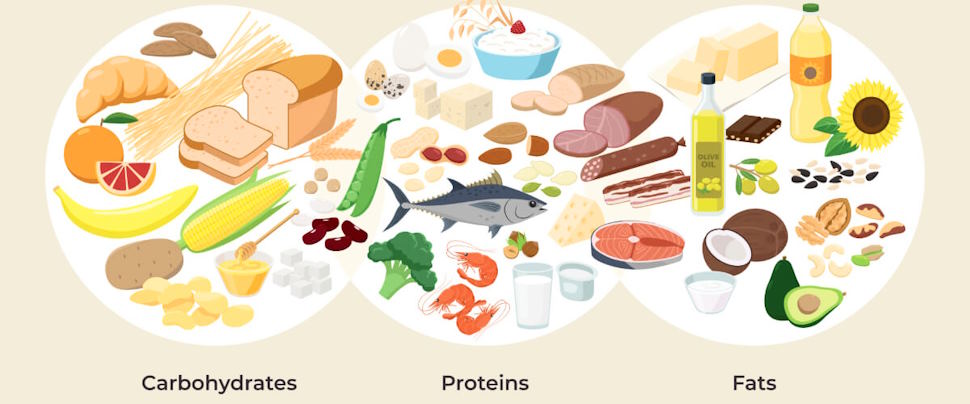Balancing these macronutrients helps promote overall health, provides sustained energy, and supports various bodily functions. However, the specific balance may vary depending on individual needs, goals, and dietary preferences.

How can I balance protein, carbs, and fat?
Balancing protein, carbohydrates, and fats in your diet requires mindful choices and an understanding of your needs. Here’s how to achieve this balance:
Determine Your Needs
Begin by calculating your daily calorie requirements based on your individual factors. These factors include your age, gender, activity level, and specific health goals. Understanding your calorie needs is a crucial starting point for appropriately allocating macronutrients.
Set Protein Goals
Protein is essential for various bodily functions, including muscle health, immune support, and enzyme production. Determine your protein needs based on your activity level and body weight. Generally, it’s recommended that protein intake falls within the range of 10% to 35% of your daily calories. Lean protein sources such as poultry, fish, lean meats, beans, and tofu are excellent choices.

Choose Healthy Fats
Fats are not only a concentrated energy source but also necessary for absorbing fat-soluble vitamins (A, D, E, and K) and essential fatty acids. Focus on incorporating healthy fats into your diet, such as avocados, nuts, seeds, and olive oil. Limit saturated and trans fats, typically found in fried and processed foods. Aim for fats to constitute about 20% to 35% of your daily calorie intake, emphasizing unsaturated fats.
Opt for Complex Carbohydrates
Carbohydrates are your body’s primary source of energy. Choose complex carbohydrates found in whole grains (like brown rice and whole wheat bread), fruits, vegetables, and legumes. These sources provide not only energy but also essential nutrients and fiber. Generally, carbohydrates should make up about 45% to 65% of your daily calories.
Consult a Professional
If you have specific dietary goals, restrictions, or health concerns, consider seeking guidance from a registered dietitian or nutritionist. These experts can provide personalized advice and assist you in creating a balanced meal plan tailored to your unique needs.
Remember that balance doesn’t have to mean strict precision with each meal. Instead, aim for balance over a day or week.



